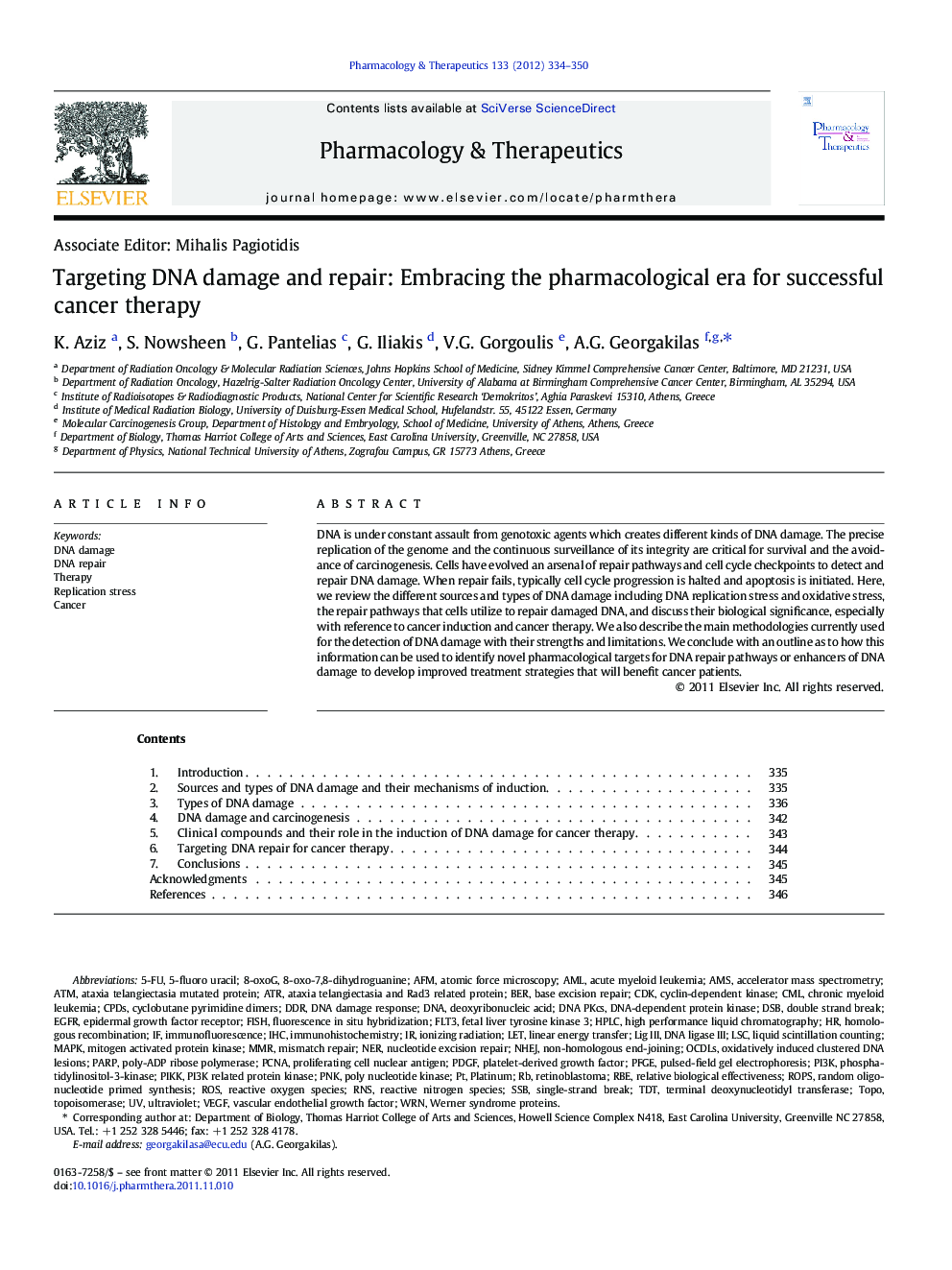| Article ID | Journal | Published Year | Pages | File Type |
|---|---|---|---|---|
| 2563513 | Pharmacology & Therapeutics | 2012 | 17 Pages |
DNA is under constant assault from genotoxic agents which creates different kinds of DNA damage. The precise replication of the genome and the continuous surveillance of its integrity are critical for survival and the avoidance of carcinogenesis. Cells have evolved an arsenal of repair pathways and cell cycle checkpoints to detect and repair DNA damage. When repair fails, typically cell cycle progression is halted and apoptosis is initiated. Here, we review the different sources and types of DNA damage including DNA replication stress and oxidative stress, the repair pathways that cells utilize to repair damaged DNA, and discuss their biological significance, especially with reference to cancer induction and cancer therapy. We also describe the main methodologies currently used for the detection of DNA damage with their strengths and limitations. We conclude with an outline as to how this information can be used to identify novel pharmacological targets for DNA repair pathways or enhancers of DNA damage to develop improved treatment strategies that will benefit cancer patients.
